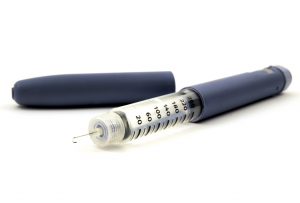Individuals with type 2 diabetes may need insulin to achieve target blood glucose levels. As such, healthcare professionals and individuals living with diabetes may have questions about insulin initiation and reaching the right dosage.
A possible reluctance to delay starting someone on insulin or increasing their insulin dose, a phenomenon called clinical inertia, may negatively affect optimal diabetes treatment. Dr. Stewart Harris, Professor in the Department of Family Medicine of the Schulich School of Medicine & Dentistry at Western University and a medical expert who took part in the study entitled TITRATION: A Randomized Study to Assess 2 Treatment Algorithms with New Insulin Glargine 300 units/mL, states that “patients with type 2 diabetes start insulin approximately 9 years after the diagnosis is made, when glycated hemoglobin is above 8.5% and complications of the disease have already begun to appear1. The results of the study that we have just performed support a simple and effective method to initiate and increase doses of insulin glargine 300 units/mL.”
Published in the Canadian Journal of Diabetes2 and undertaken in collaboration with Sanofi Canada, this new Canadian study aimed to measure the efficacy and safety of adjusting once daily doses of insulin glargine 300 units/mL, marketed under the name Toujeo®. The study was conducted over a period of 12 weeks in 212 randomly selected participants with uncontrolled type 2 diabetes.
Toujeo® is a basal insulin that was approved by Health Canada in 2015, and which has been studied in a large clinical program3. Toujeo® provides a constant glucose lowering effect over 24 hours with a once daily administration. Toujeo® has a low within and between day variability.4
“Insulin makes it possible to lower the amount of glucose in the blood. Unfortunately, it is often initiated too late in the process, exposing the patient to the risk of complications associated with high blood glucose. It is thus important to have access to a simple and effective method to initiate and increase insulin doses. As part of our study, we compared the efficacy and safety of adjusting doses of Toujeo® according to Diabetes Canada’s clinical practice guidelines,” explains Dr. Jean-François Yale, Endocrinologist, Professor in the Department of Medicine of McGill University and member of the team of investigators who carried out the study. “Since Toujeo® is a longer-acting insulin than Lantus®, it was important to assess whether the recommendation for patients to adjust their doses at a rate of one unit per day until target blood glucose levels are achieved also applied to Toujeo®; this study’s conclusions proved favourable and show that it is possible.”
“We are proud that Toujeo® was instrumental to this important study for people living with diabetes,” claims Niven Al-Khoury, President at Sanofi Canada. “With over 100 years of experience of working to understand and support the healthcare needs of Canadians, being able to bring valuable solutions is core to our purpose.”
Diabetes affects approximately 3.4 million Canadians, of which type 2 diabetes accounts for 90% of cases 5,6. It is estimated that 5.7 million Canadians have prediabetes; this condition is characterized by blood glucose levels above normal, but not high enough to be diagnosed as diabetes. Fifty percent of individuals with prediabetes will develop type 2 diabetes7. Left untreated, diabetes can lead to many serious complications, such as heart disease, kidney disease, loss of vision and amputation of the lower limbs.
October 20, 2017

